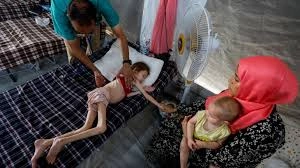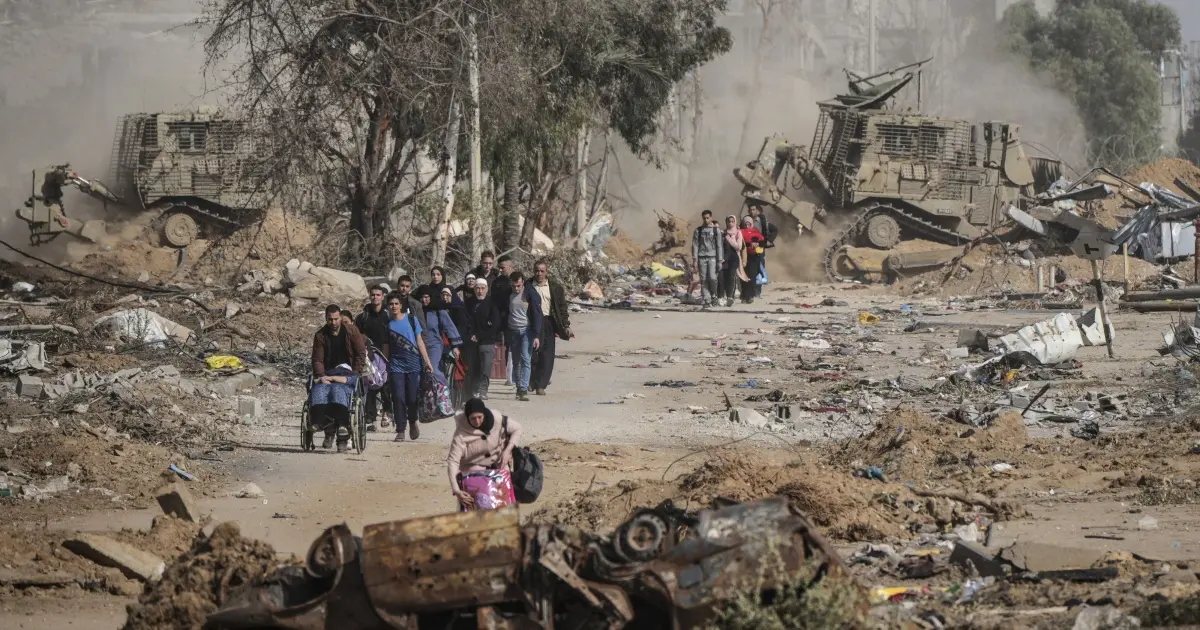Famine in Gaza is leaving families hungry and vulnerable, with children and communities facing unimaginable hardship. Discover the causes, impacts, and urgent need for global support to bring relief, hope, and a future free from hunger.
Gaza’s Growing Crisis
The famine in Gaza has reached an alarming stage, leaving millions struggling to survive. Constant bombings, food shortages, and blocked aid routes have pushed families into desperation. With no stable supply of clean water, electricity, or shelter, the crisis deepens every day. This unfolding humanitarian disaster has captured the world’s attention, but urgent action is still lacking.
Blockades and Hunger
Years of strict blockades and on going conflict have cut Gaza off from vital resources. Farmers cannot grow crops, fishermen cannot access the sea, and imports of food and medicine are heavily restricted. The famine in Gaza is not just the result of natural causes but a man-made crisis, created by war and isolation.
Broken Infrastructure
The infrastructure in Gaza lies in ruins. Bombed farmlands, destroyed greenhouses, and collapsed markets mean people cannot access basic food supplies. Agriculture, once the backbone of survival, has been reduced to nothing. Without a functioning economy, jobs have vanished, leaving families with no income to buy even bread or milk.
Also Read:Chinese Garment Firm To Set Up Special Economic Zone In Pakistan 2025!
Children at Risk
Children are the most affected victims of famine in Gaza. Malnutrition, stunted growth, and lack of medical care are creating a lost generation. Pregnant women, the elderly, and the sick face extreme risks as their weakened bodies cannot endure hunger. Every day without food aid increases the death toll among the most vulnerable.

Health System Collapse
Hospitals in Gaza are collapsing under the weight of war and famine. With limited supplies, doctors struggle to treat the starving. Many health centers lack electricity, clean water, and essential medicines. Malnourished patients arrive in critical condition, but even the most basic treatments are unavailable, making survival almost impossible.
Aid and Access Issues
While international aid agencies try to deliver food, water, and medical supplies, political restrictions and ongoing conflict delay the process. Trucks full of relief items wait at borders for weeks. The famine in Gaza continues to worsen as bureaucracy and political barriers prevent life saving assistance from reaching the people who need it most.
Voices from Gaza
Survivors describe heartbreaking scenes: children crying from hunger, parents skipping meals so their kids can eat, and families cooking grass or animal feed to survive. These voices from the ground reflect the human side of famine in Gaza, moving beyond statistics to show the unbearable suffering in daily life.
SOURCE:https://www.youtube.com/@BBCNews
Media vs. Reality
Global media coverage often underrepresents the severity of famine in Gaza. While some headlines highlight starvation, the reality is far worse than reported. On the ground, people face a constant struggle for survival. The world must see the truth, beyond political narratives, and acknowledge the scale of human suffering.
Human Rights Violations
Famine in Gaza raises serious human rights concerns. Denying civilians access to food, water, and medicine violates international humanitarian law. Legal experts argue that starvation used as a weapon of war could amount to war crimes. The global community has both a moral and legal responsibility to act.
Act Now for Gaza
The famine in Gaza is not only a local tragedy but a global challenge. World leaders must push for an immediate ceasefire, open humanitarian corridors, and pressure all parties to allow aid. Ordinary people can also help by raising awareness, donating to trusted charities, and standing in solidarity with Gaza’s people.
Final Thoughts
The famine in Gaza is one of the most urgent crises of our time. Families are not just hungry they are starving under siege, with little hope for tomorrow. The world cannot remain silent. By spreading awareness, supporting relief efforts, and demanding political change, we can help bring hope and survival to those caught in the killing fields of hunger.




Join The Discussion